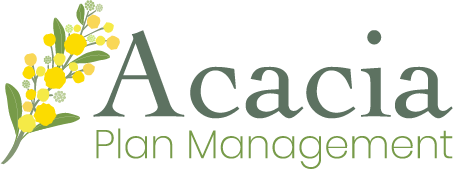The 2021-22 Annual Pricing Review Consultation Paper has been released. The NDIS are seeking feedback about price limits and policy for the next financial year.
The paper looks at current NDIS pricing arrangements and price limits and related policies to determine if they are appropriate, or if changes may be required. The paper outlines topics for review and information about how to make a submission.
Prices for most supports will remain unchanged this financial year and major changes will commence on 1 July 2022. Let’s take a look at the some of the key changes being proposed.
Simplifying pricing arrangements, limits and associated rules
As many will undoubtedly agree, the NDIS Price Guide is a very complex document. At 111 pages, providers and participants regularly report that it is difficult to understand. The NDIA is seeking feedback on how to simplify the price limits and associated rules and communicate the policy in more accessible ways, including plain English and interactive formats.
Price limits for 1:1 core supports
Almost three quarters of NDIS expenditure is directed at core supports, so there is a strong focus on getting this area of pricing right. Currently pricing of these supports are calculated by NDIA’s assumptions of how much it costs to employ a worker, including salary, superannuation, on-costs, leave, utilisation, insurance, supervision, overheads and margin. The NDIA then uses this to set prices for most core supports and some capacity building supports.
Temporary Transformation Payment (TTP)
In 2020-21, more than half of providers that are eligible to claim TTP are choosing not to. The most likely explanation for this is that TTP is not added to participants’ budgets, so participants are paying for it. The NDIA seems to be interpreting this data to mean that TTP may no longer be required and is looking to determine whether to end it early.
Support Coordination
The Support Coordination section will consider:
- Whether the price limits are appropriate for the skills and experience required; and,
- Whether the overheads may necessarily be higher than those of other providers.
Plan Management
The Plan Management section looks at whether the current pricing arrangements are appropriate, specifically if the establishment fee and monthly fees are reasonable. The NDIA has alluded to moving from the current portal-based manual claiming system to a real-time system, which is expected to change the role that Plan Managers currently play in processing claims. This may highlight an intention to alter the price limits for plan management either following this price review or once a new system is active.
Regional, Remote and Very Remote Areas
The NDIA is seeking fresh evidence on how much more expensive it really is to provide supports outside metropolitan areas. They are also open to classifying new “Isolated Towns” for planning and pricing purposes. These are locations surrounded by Remote or Very Remote areas.
Pricing in WA, SA and QLD
The Paper recognises that parts of WA, SA and QLD are dependent on the mining industry and as such are more at risk of associated peaks and troughs. The NDIA wants to explore how this volatility impacts the disability sector, including the ease of hiring/retaining workers.
What happens next?
Participants, providers and community and government stakeholders now have the opportunity to make submissions and to join working groups. The NDIA will collect feedback from these events and may hold a second round of consultation with the sector in 2022.
The results will be announced in March 2022 and the indicative NDIS Pricing Arrangements and Price Limits 2022-23 will be released in April 2022. Following the Fair Work Commission’s annual minimum wage decision, the Pricing Arrangements and Price Limits 2022-23 and Support Catalogue will be released in June 2022.
Any new arrangements following these updates and recommendations to the NDIA Board will commence from 1 July 2022.
What are working groups?
The NDIA will lead 11 working groups of up to 25 members to analyse at the topics outlined in the Consultation Paper. Participants, providers and other stakeholders are encouraged to participate in one or more working groups.
The working groups will meet by video conference on several occasions between November 2021 and February 2022. The NDIA will appoint provider and participant representatives to the working groups based on their relevant expertise and experience.
Submissions on the Consultation Paper close midnight AWST, Sunday 28 November 2021. You can download the document here.





